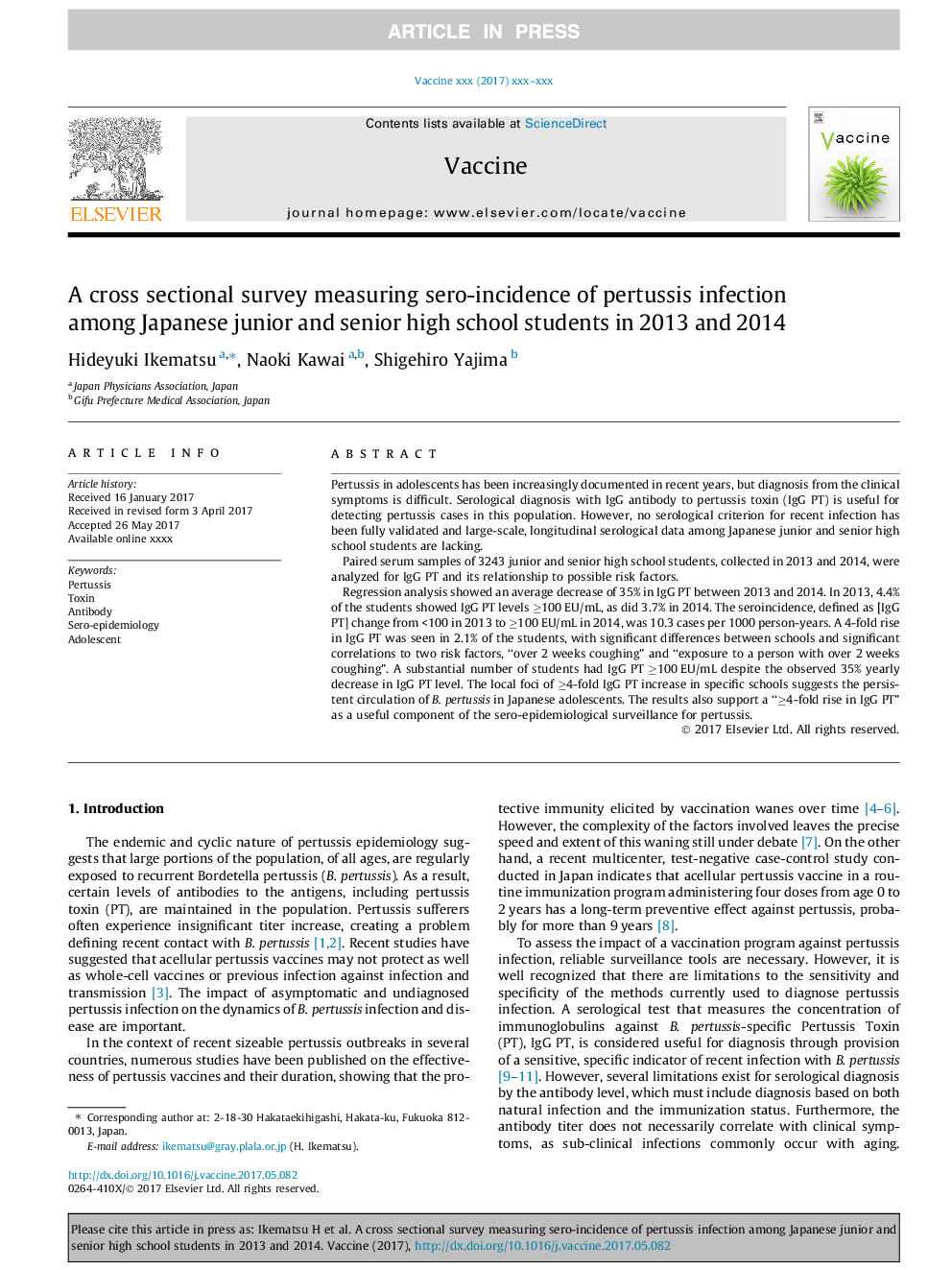| Article ID | Journal | Published Year | Pages | File Type |
|---|---|---|---|---|
| 5536466 | Vaccine | 2017 | 6 Pages |
Abstract
Regression analysis showed an average decrease of 35% in IgG PT between 2013 and 2014. In 2013, 4.4% of the students showed IgG PT levels â¥100 EU/mL, as did 3.7% in 2014. The seroincidence, defined as [IgG PT] change from <100 in 2013 to â¥100 EU/mL in 2014, was 10.3 cases per 1000 person-years. A 4-fold rise in IgG PT was seen in 2.1% of the students, with significant differences between schools and significant correlations to two risk factors, “over 2 weeks coughing” and “exposure to a person with over 2 weeks coughing”. A substantial number of students had IgG PT â¥100 EU/mL despite the observed 35% yearly decrease in IgG PT level. The local foci of â¥4-fold IgG PT increase in specific schools suggests the persistent circulation of B. pertussis in Japanese adolescents. The results also support a “â¥4-fold rise in IgG PT” as a useful component of the sero-epidemiological surveillance for pertussis.
Related Topics
Life Sciences
Immunology and Microbiology
Immunology
Authors
Hideyuki Ikematsu, Naoki Kawai, Shigehiro Yajima,
